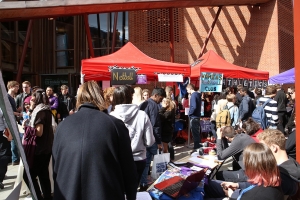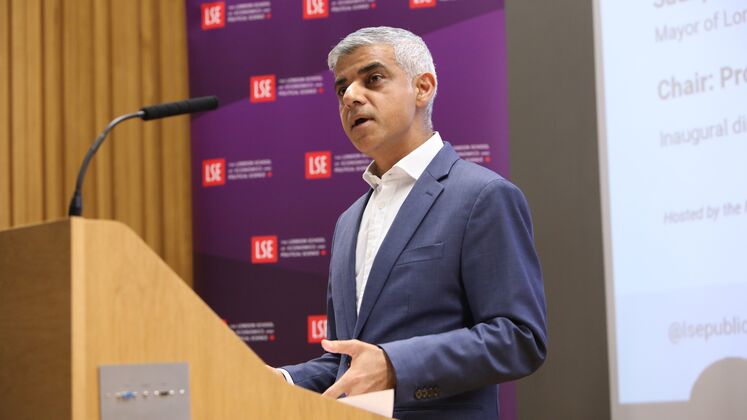High school might have just ended a few months ago (or close to a year for me, and those who have taken a gap year), but the leap in academic and school culture definitely feels much greater than a mere few months.
Hence, I decided to write this article to clarify five thoughts that might have been bugging some of you (and definitely has been bugging me) about this transition to the LSE that has an inevitably steep learning curve.
The myths:

- “Everyone understands the jargon and “big words” without having to use a dictionary.”
20 pages of readings for each module each week… and this cycle never ends, it only gets worse. With so many readings to do, it would be a lot easier if you actually knew what they were talking about.
Fret not, because your friends or course mates might not admit it, but most of them do have a ‘dictionary.com’ webpage or google search webpage open in one of their tabs, which they alternate to between their readings. There is also no shame in having to check the word multiple times. I have probably searched terms such as ‘ontology’, ‘epistemology’, ‘perspectivism’ at least five times each, and mostly because I confuse it with the definition of yet another ‘big word’.
Moreover, even the most brilliant people get terms wrong. For my AN102 (Anthropology; Interpretation of Text and Film) module, my professor came across the term ‘evenential history’ in one of our set texts, which he then searched but realised was a term that did not exist. As he had to teach the book, it wasn’t a term he could simply ignore or gloss over (like most of us do after searching three terms in a single paragraph). He then emailed the author, who admitted that he had made a spelling error, and the term was meant to be ‘evenemential history’. Even published and renowned experts can make blunders with their terms!
So, continue to search away, and don’t be afraid to clarify such terms in class, because more often than not, your classmates will be glad you asked the question.
- “Everyone is able to finish their readings.”
In week 2 of MT, my friend and I had to complete the same set of readings on Karl Marx. I did not manage to finish the entire article (I read about half of it), and went to class the next day but still managed to participate in a fruitful discussion with what I had garnered from what I read. My friend, on the other hand, stayed up till late to finish the entire reading, but ended up oversleeping and missing the class.
I will leave it up to you to decide who made the better decision that day…
Finishing your readings in preparation for classes is essential, but we are all human after all. Finishing readings should also not come at the expense of reading without understanding, or skipping other lectures/classes just to read.
A tip I have found very useful to tackle large volumes of readings with limited time, is to first read the abstract, the introduction and the conclusion. These three sections will give you a quick overview of the salient points in the article and the author’s argument. If you do have time to plough through the entire article, it will also make reading much easier as you can easily understand the flow of the argument and what the author is trying to convey.
- “You need to (insert activity) to be social.”
I have absolutely nothing against clubbing, a fun late night out or travelling with friends. However, your reason for going should not be “because everyone else is going/doing it”.
The picture above was taken when my hall mates and I decided to take a stroll along the South Bank late at night. What was supposed to be a short stroll turned into a 1.5 hour walk from Bankside House to the Golden Jubilee Bridges and back. A long walk might sound boring, but through that walk I managed to catch up with a few friends I haven’t spoken to amidst the hustle and bustle of school commitments, as well as learn more about new friends.
The largest difference between high school and university is that there is no fixed programme that you have to follow – no compulsory extra-curricular activities, programmes or outings you have to turn up for. With too much choice, we are often conflicted on what we should spend our time on. Of course I don’t advocate cooping yourself in your room to study all the time (I strongly believe in the mantra of ‘work hard, play hard’), but if an activity is something you are sure you wouldn’t enjoy, it would be more fulfilling to simply sit in bed and leisure read, or even watch a TV show. Staying in with friends to watch a movie on someone’s laptop could also be a bonding activity (especially when it’s a trashy movie that you can all complain about after).
It is also good, and necessary, in my opinion, to take some time off away from activities and people to reflect each week.
- “You need to be sure of your career choice.”
In high school, everyone was talking about applications to Oxbridge, the London schools or the Ivy League schools, personal statements, SATs, etc…
Now, the talk has changed to career fairs, CV workshops, networking events… the list goes on and there are just so many things happening all the time (and at the same time), it overwhelms you. All your friends also seem so certain of their career path, and they are working towards it with such passion and conviction that this is what they want to do after they graduate. My friends in Economics and Accounting & Finance were already doing up applications to Investment Banking firms in the second week of school, while I am still a clueless Social Anthropology student exploring options. It is intimidating, and there is a lot of peer pressure to simply follow the crowd for fear of losing out.
However, it is my personal conviction, at least, that not being sure of what you want now is okay. There are many other events organised by LSE CareersHub that are not investment banking related. There are events for those interested in the media industry, marketing, volunteering, and even “How to Choose a Career” and other decision making workshops.Investment banking is a great career path, but it is not the only career path that brings about excellent benefits.
Quantitative students, you might want to consider work that is not consultancy/banking related, or consultancy work for social causes; qualitative students, you might want to consider a different sector of investment banking or consultancy work for corporate organisations.

- “You need to be actively involved in and committed to a society.”
This is perhaps similar to knowing what you want (points three and four above).
Once again, it is fantastic if you have found a society, cause or sport you’re extremely passionate about, but for those who are still exploring their interests, do not be worried! Fresher’s year is meant for dabbling and exploring, to figure out what you really like. There is after all, no point in committing so much time and effort into something you don’t like, and will simply end up moaning and groaning about the additional workload.
For instance, I probably joined seven or eight societies (just to name some off the top of my head: Singapore Society, Drama Society, Amnesty International, Itchy Feet, Enactus…) from the excitement of Freshers’ Fair and the recommendations of seniors and friends. However, I do not commit to all of them equally, and only attend the events of some societies occasionally, depending on my interests.
I hope this is somewhat useful (and comforting) for those struggling with a new system/school culture in the LSE. If you disagree with any of the points, please feel free to share your experience. Or if there is anything else you feel has been a real struggle for you since coming to university, share it in the comments, and you never know, you could realise many other people are facing the same problem as you!








